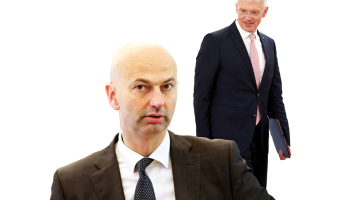
Foto: Raimo Lielbriedis, F64
For me one of the most important issues for Latvian economic policy should be to realize that being in the Eurozone does not imply automatic economic growth
At the moment of writing Latvia fulfills all five Maastricht criteria and should thus be set for adopting the euro on 1 January 2014. True, besides the five quantitative criteria (on inflation, exchange rate, long-term interest rates, budget deficit and government debt) a country is also supposed to be evaluated on the basis of ‘sustainability' of e.g. low inflation but that never seems to have played a major role. (Estonia was invited to join at a time of negative inflation, which is hardly sustainable). For all the recent newcomers, Slovenia, Malta, Cyprus, Slovakia and Estonia, it seems to have been the case that fulfilling the five means you're in and I do not envisage this to be different in the case of Latvia. And why should it be?














